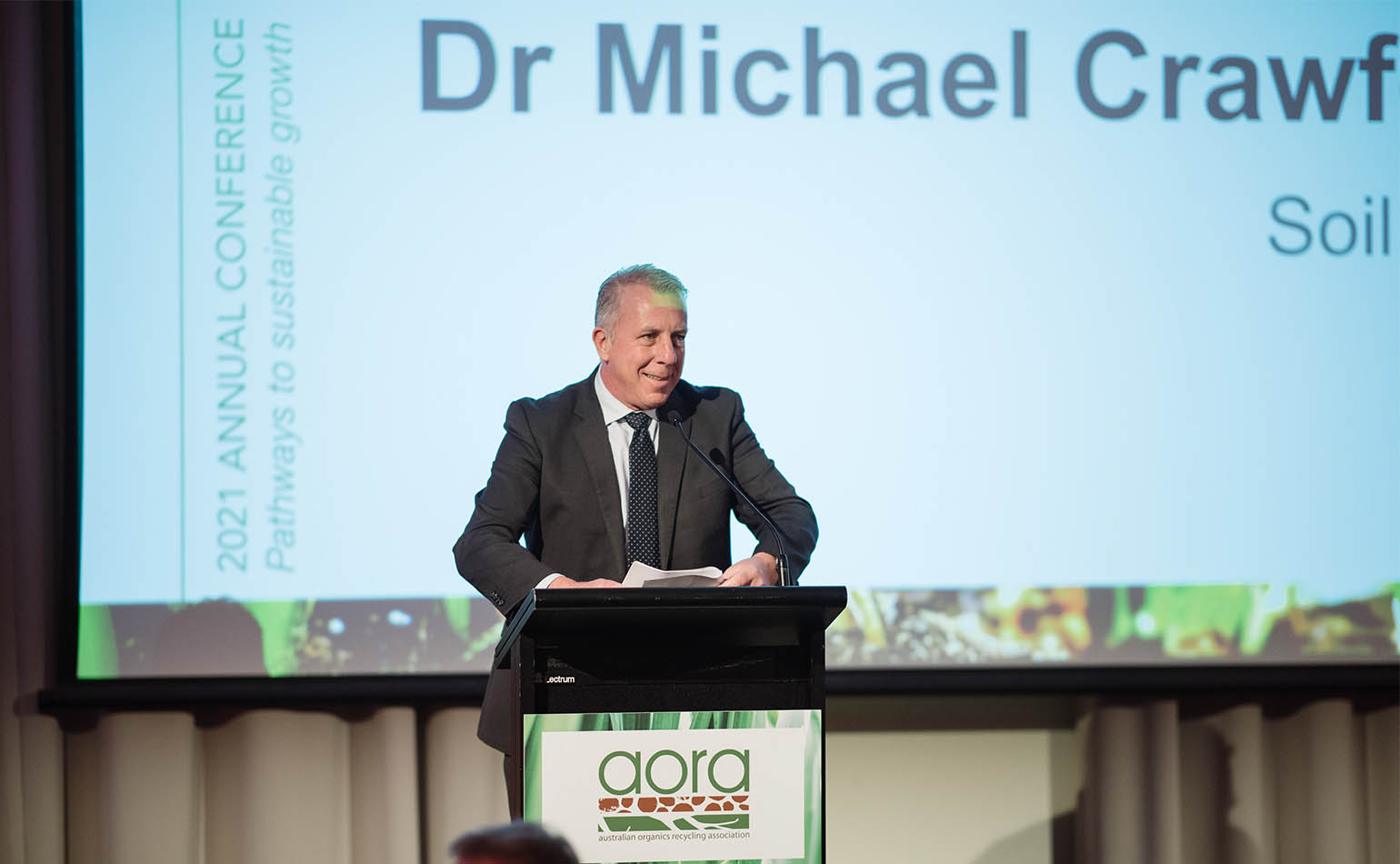The Australian Organics Recycling Association (AORA), a participant in the Soil CRC, held their annual conference in the Hunter Valley in June.
AORA aims to maximise the recycling and reuse of organic materials. They promote the benefits of compost, soil conditioners and mulches across the Australian community and business.
The Soil CRC is fortunate to boast some experts in the field of organics recycling, including Professor Nanthi Bolan (University of Newcastle), Professor Chengrong Chen (Griffith University) and Amanda Kane (NSW EPA), who all presented at the conference. The Soil CRC Patron, the Hon Penny Wensley, spoke in her role as National Soils Advocate. One of our PhD students, James O’Connor, was also awarded first prize in the Honours Category of the AORA Student Research Awards.
As the Conference Dinner speaker, Dr Michael Crawford, CEO of the Soil CRC, addressed delegates with his thoughts on how Australian agriculture can meet the target of $100 billion by 2030, and the importance of good soil management in that quest. He outlined a series of possible outcomes that Soil CRC research is contributing to, that will assist in reaching that target, including advances in soil measurement; a change in lending practices by banks to recognise good soil management; a shift in the value that consumers place on soil stewardship; improved soil data management; widespread adoption of Integrated Soil Fertility Management and a convergence of regenerative agriculture and mainstream agriculture.
A major talking point at the conference was the Australian Government’s new National Soils Strategy that includes funding of $67 million over 4 years to establish the Food Waste for Healthy Soils Fund. The fund will expand Australia’s organic waste processing infrastructure to increase the quantity and quality of compost available to improve our agricultural soils.
In his speech, Dr Crawford highlighted how some Soil CRC research projects are already looking at various opportunities for increasing the use of recycled organic materials in agriculture. A project led by the University of Newcastle is looking at new cost-effective pathways to recover nutrients and develop high-grade fertilisers from organic waste streams. Griffith University leads a project looking at organic materials as carriers for microbial inoculants such as rhizobia and other bacteria and fungi, and as a means of enhancing water retention in the soil.
NSW Department of Primary Industries scientists are looking at how organic materials might be combined with lime and gypsum to more effectively ameliorate subsoil constraints such as acidity and sodicity, and hence improve agronomic efficiency. In Western Australia and South Australia, researchers at Murdoch University are looking at how organic amendments might be used to improve the productivity of sandy soils, and how they might enhance the nutrient and water use efficiency of crops on these difficult soils. The conference was a great opportunity to learn more about the innovations that are occurring in organics recycling and it was a great to be talking to people in person once again.

